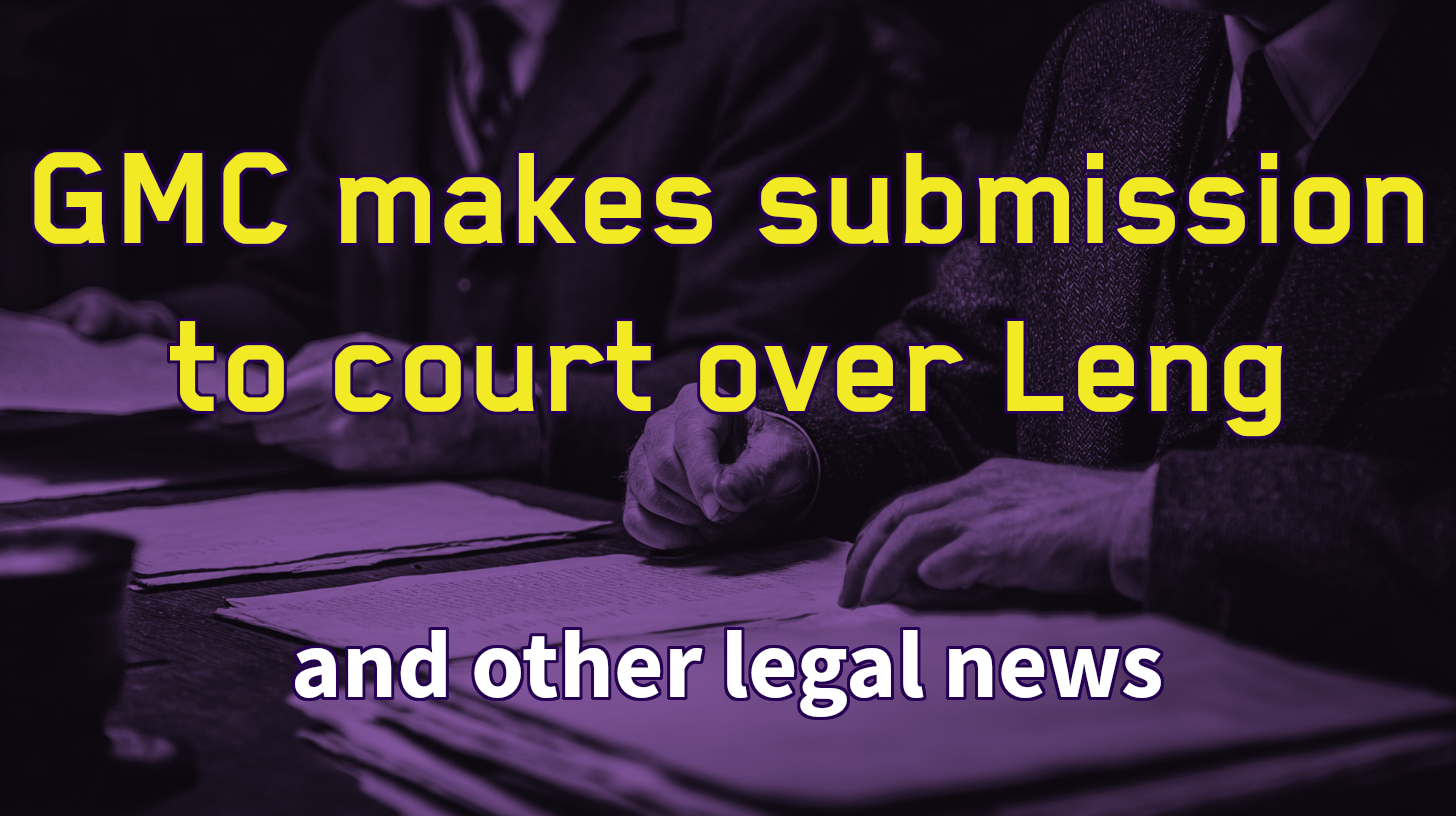Following the publication of the Leng review, there may be further delays in getting our verdict as the GMC has asked the court to look at how this review affects our claim. The GMC, BMA and ourselves have now been asked to identify those parts of the review that are relevant to our case – and how.
But this has taken time. Worse, we are now at the end of the legal summer term and the Michaelmas term does not start until October.
And other legal actions are causing more delays. UMAPS – the trade union for PAs and AAs – has announced its own legal action against both the Secretary of State and NHS England, calling for them to reconsider what UMAPS says are ‘decisions’ to implement the recommendations of the Leng Review.
In fact, what the Secretary of State has said is not quite as clear cut as UMAPS suggests – there is essentially a high level commitment to consider Leng’s recommendations and for “NHS England to move with immediate effect to implement those recommendations which most directly affect patient safety, including moving to the use of physician assistants and physician assistants in anaesthesia titles and ensuring that physician assistants do not see undifferentiated patients, except within clearly defined national clinical protocols.”).
We think delay at this stage is very wrong. In part because ensuring patient safety can never wait. But also because universities, and others involved in training PAs, should not be recruiting and encouraging applicants to apply for a job that may be in a different form to how it is today.
We say the Court still has a pressing question to answer regarding the GMC’s own decision making to date. This is fundamentally separate from the question of what the Secretary of State and NHS England should do about Leng.
Our response to the GMC and the Court over Leng
We have expanded on this basic point in detailed submissions to the Court which are worth reading.
We explain that the Leng review does not directly affect our claim, although it underscores the reasons why we brought it in the first place. Leng’s review was produced for a different reason, and after the GMC’s decision not to set scope had been made.
It cannot address the legality of what the GMC is doing, which is the core question at the heart of our case.
That being said, the Leng review does highlight
- The risks posed by associates – well-known risks that the GMC should have considered when introducing regulation but chose not to.
- The risks of Physician Assistants (formerly Physician Associates) seeing undifferentiated patients.
- The fundamental differences between doctors and associates, and the asymmetry between PA’s perception of their own practice and the views of their supervising doctor.
It endorses the RCoA guidelines, which we think should serve as a model for other Royal Colleges to follow.
And Leng agrees with one of our key points. On the issue of setting Scope of Practice, she concluded that there should be some substantive limits on what PAs may do – and an implicit ultimate ceiling (for example, Recommendation 17 refers to “limiting the functions” carried out by these roles ).
However, her report is silent on the question of enforcement – who makes the rules and makes sure they are followed – and we are very aware that Trusts have ignored and circumvented what RoCA has said in the past. Even though determining the standards for formal credentialing falls to the Royal Colleges, there is a clear role for the regulator in underpinning and enforcing these limits.
Is UMAP’s own legal action rational?
Meanwhile, UMAPs have commenced their own legal action in an attempt to force the government to reconsider its commitment to implement the recommendations of the Leng Review.
Among the claims made in the letter, UMAPs is alleging that the government/DHSC failed to
- properly consult Medical Associate Professionals (MAPs) before implementing Leng’s recommendations
- carry out a proper cost/benefit analysis of how reducing the scope of MAPs’ work would affect NHS delivery targets.
- making recommendations which apparently seek to address grievances of Resident Doctors, rather than the safety of MAPs, and they
- Ignored the potential bias of information included in the Leng Review.
For the claim to succeed, UMAPs will need to convince a judge that the commitment to act in response to a detailed, evidence-gathering, specialist, independent, Government-commissioned review concerning serious issues of patient safety is irrational (or so unreasonable that no reasonable decision-maker would have made it).
While we can see that is going to be a tough argument for them to win, we are very concerned about the possible delays that this will introduce. All stakeholders – hospitals, physician assistants themselves and their supervising doctors, professional bodies – need some clarity as soon as possible and this does not help.
PA training programme to halt recruitment
Brighton and Sussex have just announced that their Physician Associate programme will not be recruiting a new intake for the 2025 academic year. They have introduced this pause to allow time for reflecting on the outcomes of the Leng Review, and to consider the evolving landscape around employment opportunities for Physician Associates.
Current students will remain in training, in line with the relevant GMC standards.
We are waiting to hear from the court and will post any news as soon as we have it. In the meantime, our legal expenses continue and we appreciate any contributions you can give us.
